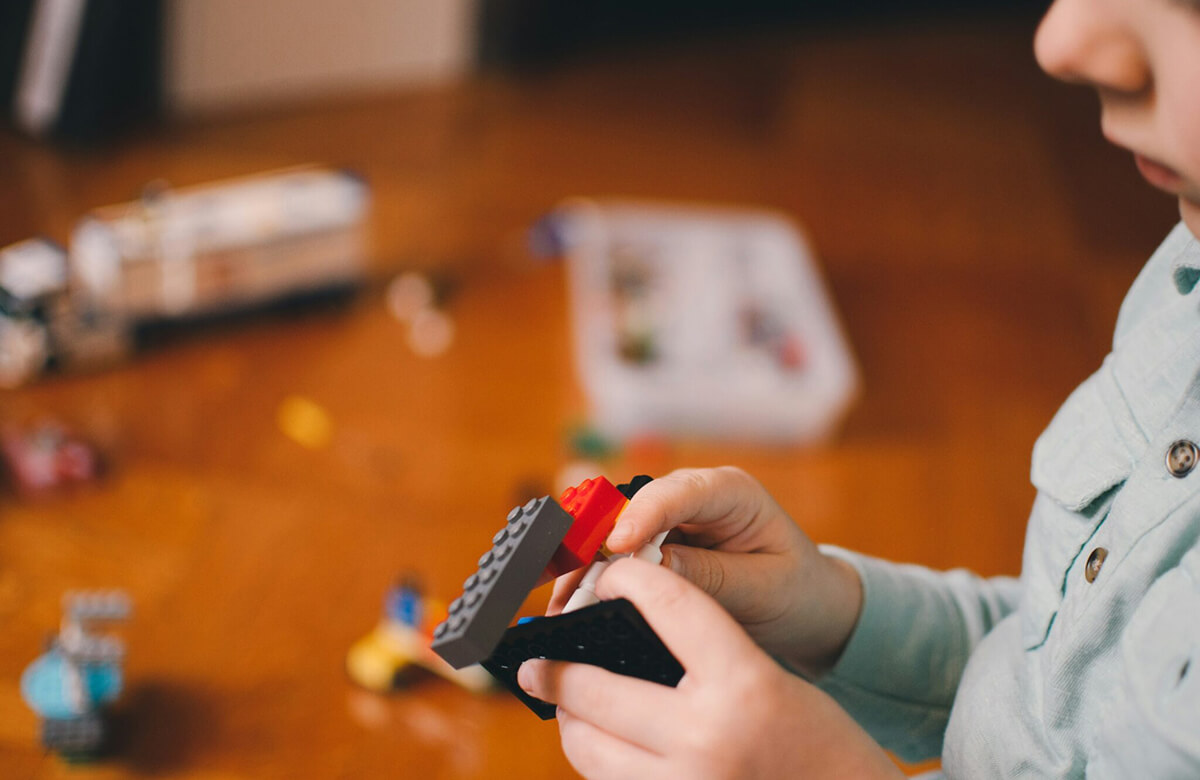Children’s natural way of being and thriving is through play. Imagination, creativity, control, problem solving, and emotional regulation are critical factors of play and healthy child development. Hence, play therapy focuses on the above resiliency factors for children by exploring, processing, understanding, coping, and healing through play therapy.
How Does Play Therapy Work?
In play therapy, the therapist meets the child emotionally and physically at where they are at. The therapist facilitates the child to have control over the choice, narrative, content, and style of play. This could range from shooting hoops in basketball to legos to drawing to story writing to checkers to dolls and puppets. The therapist allows the child to take the lead and follows to enter and explore the child’s natural inner world. In very gentle ways, the therapist makes observations and engages in questions and a dialogue within the play to facilitate the processing of whatever the child may be struggling with or stuck in.
The coping and healing in play therapy gradually emerges with the soft guidance of the therapist over time in suggesting solutions, perspective taking, roles, scripts, responses, behaviors, and coping mechanisms all within the play in a natural organic way. Building trust is key, taking your time is necessary, safe play is critical, and separate parent guidance may also be necessary as the therapist works over time with the child.
What Age is Play Therapy Best For?
Typically 3yrs to 12yrs, but we can also successfully integrate play therapy with teens who are creative, playful, or enjoy games and art.
What are the Goals of Play Therapy?
The goals of play therapy include:
- Entering and exploring the child’s inner world and experiences that they may not be able to verbally express.
- Giving the child control in safe ways to express their feelings and thoughts freely in play therapy without judgement or criticism.
- Recognizing the patterns and themes of the challenges the child is struggling with or has experienced.
- Gently engaging in play therapy with the child to follow their lead, build trust, and then gradually introduce play interventions for reflection, identification, processing, coping, solutions, and healing.
Who can Benefit From Play Therapy?
Anyone who enjoys and can utilize creativity, imagination, organic processes, non-verbal communication. Sand Therapy is a great example of how adults can also engage in play therapy.
What Outcomes Should I Expect?
Parent guidance and feedback with the therapist in an ongoing way is important so that parents are engaged in the process and have a better understanding of their child and their challenges. The therapist should also engage the parents in where the child is stuck, how best to respond and cope with the child, solutions and interventions to implement in home and school, and set up systems and structures that will help the child thrive in all environments.
Play therapy is a gradual process and will take time. But with feedback and information from the therapist, and if the child enjoys coming to play therapy, over time you should see a child who is lighter and happier in emotions, better able to communicate their needs and feelings in words, and better able to emotionally and socially regulate as they begin to overcome, heal, and then thrive.
Interested in learning more? Book a free 15-minute consultation with a member of our team.
